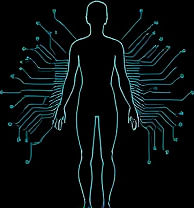Reducing Cognitive Biases for Enhanced Mental Clarity
 by Verner Mayer
by Verner Mayer
Cognitive bias reduction offers a path to clearer decision-making and better mental health. By integrating nootropics and wearable tech, individuals can optimize brain function and achieve personal growth. This approach empowers tech enthusiasts to refine their cognitive processes effectively.

Cognitive bias affects daily decisions, often leading to errors in judgment. In biohacking, focusing on cognitive bias reduction helps improve overall mental performance. Many seek ways to enhance brain function for better outcomes in work and life.
The Basics of Cognitive Bias
Cognitive bias refers to systematic patterns that skew thinking. These patterns can hinder clear reasoning and decision-making. By addressing them, people gain sharper focus and more accurate perceptions. For instance, confirmation bias might cause someone to favor information that supports their views, ignoring contrary evidence.
In biohacking, reducing these biases involves strategies that boost brain health. Nootropics, substances that support cognitive function, play a key role here. They work by improving memory, concentration, and mental flexibility, which in turn minimizes biased thinking.
Nootropics and Brain Optimization
Nootropics offer natural or synthetic options to support mental clarity. Popular choices include compounds like caffeine combined with L-theanine, which promote alertness without jitteriness. These help in maintaining steady attention, reducing the impact of biases like availability bias, where people rely on immediate examples.
Regular use of certain nootropics can lead to long-term benefits. For example, omega-3 fatty acids from fish oil support neural health and reduce inflammation in the brain. This creates a foundation for unbiased processing of information. Users often report improved problem-solving abilities after consistent intake.
To integrate nootropics effectively, start with small doses and monitor effects. A simple routine might include taking supplements in the morning to set a clear mindset for the day. This approach aligns with broader biohacking goals of personal enhancement through targeted interventions.
Wearable Technology in Cognitive Enhancement
Wearable technology provides real-time data on physical and mental states. Devices like fitness trackers monitor heart rate variability, an indicator of stress levels. High stress can amplify cognitive biases, making it harder to think objectively.
By using these tools, individuals track patterns and make adjustments. For example, a smartwatch might detect increased heart rate during decision-making tasks, signaling potential bias influence. This feedback loop encourages pauses for reflection, fostering better habits.
Some advanced wearables include features for guided breathing exercises, which calm the mind and reduce emotional biases. Over time, this technology aids in building resilience against distorted thinking. The data collected offers insights into personal rhythms, allowing for customized strategies in daily life.
Practical Strategies for Personal Enhancement
Personal enhancement through biohacking extends beyond products. Simple practices like regular exercise and quality sleep form the base for reducing cognitive biases. Physical activity increases blood flow to the brain, enhancing cognitive flexibility and reducing rigid thinking patterns.
Mindfulness techniques, such as meditation, help in observing thoughts without judgment. This practice counters biases by promoting awareness of automatic responses. Combining these with nootropics creates a synergistic effect, amplifying overall benefits.
For tech-savvy individuals, apps that gamify learning can reinforce new habits. These tools provide challenges that train the brain to recognize and mitigate biases. Lists of daily affirmations or journaling prompts serve as effective aids in this process.
- Track daily biases in a journal to identify patterns.
- Experiment with nootropics and note changes in focus.
- Use wearables to set alerts for breaks during intense work.
Benefits and Real-World Applications
The advantages of cognitive bias reduction are far-reaching. In professional settings, clearer thinking leads to better innovation and teamwork. For wellness enthusiasts, it means more balanced personal relationships and self-awareness.
In health optimization, minimizing biases helps in making informed choices about lifestyle. For instance, avoiding sunk cost bias could mean quitting unproductive habits sooner. This mindset shift supports long-term well-being and achievement.
Many find that integrating these biohacking elements results in greater satisfaction. By prioritizing mental clarity, individuals unlock potential in various areas, from career advancement to creative pursuits.
Moving Forward with Biohacking
Focusing on cognitive bias reduction through biohacking empowers lasting change. With nootropics, wearable tech, and mindful practices, anyone can refine their cognitive abilities. The key lies in consistent effort and adaptation, turning insights into actionable improvements. This path not only optimizes health but also enriches life experiences.
